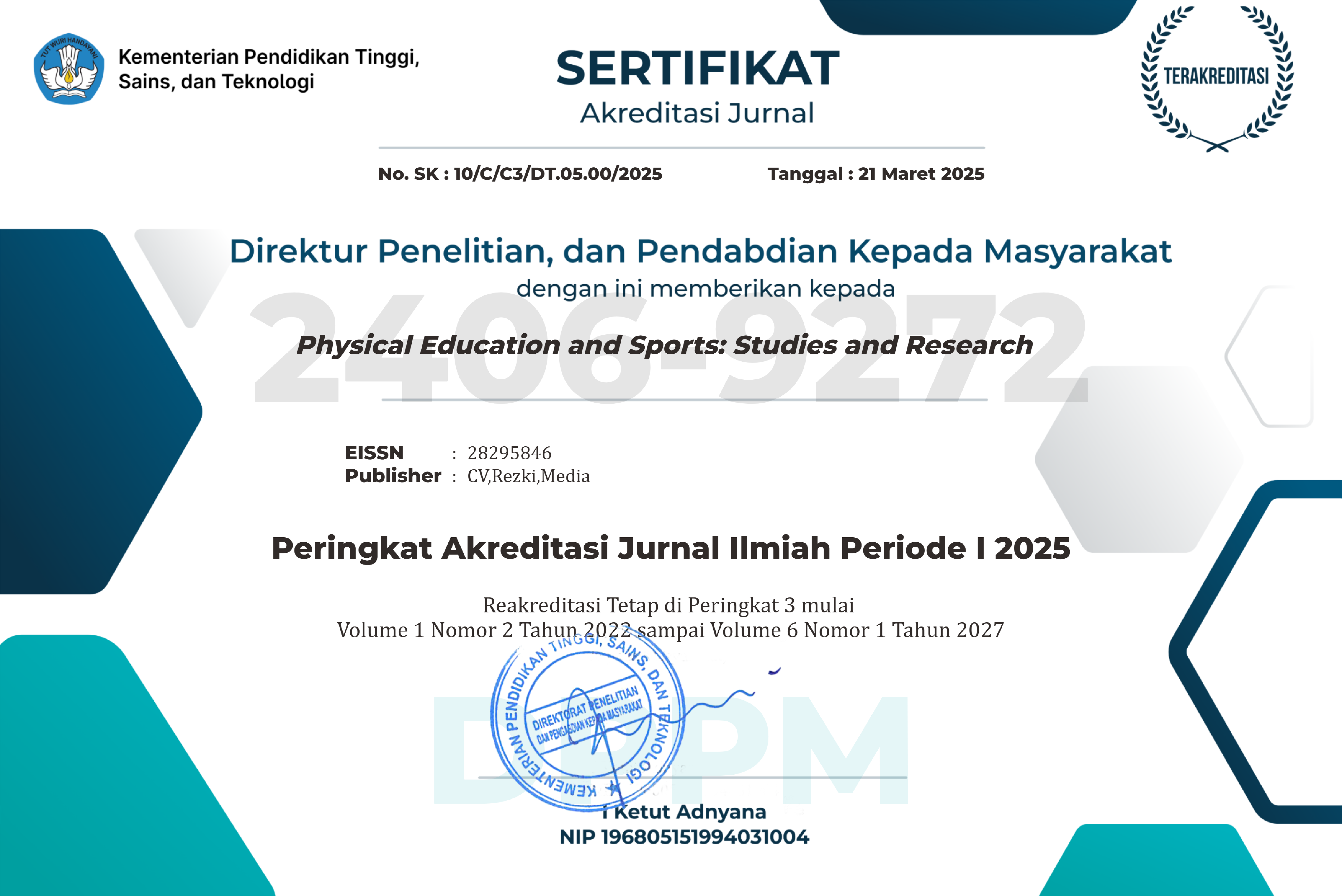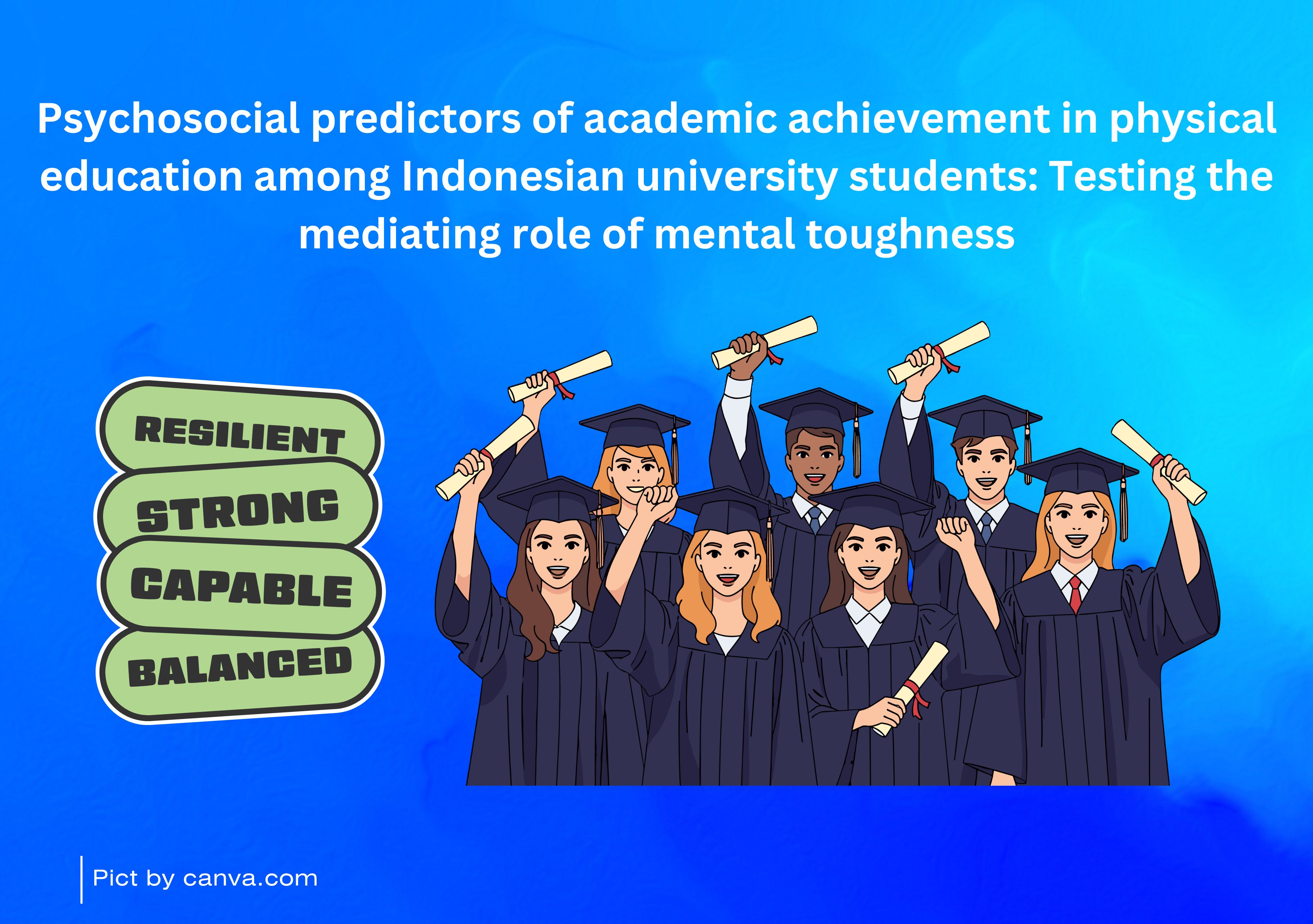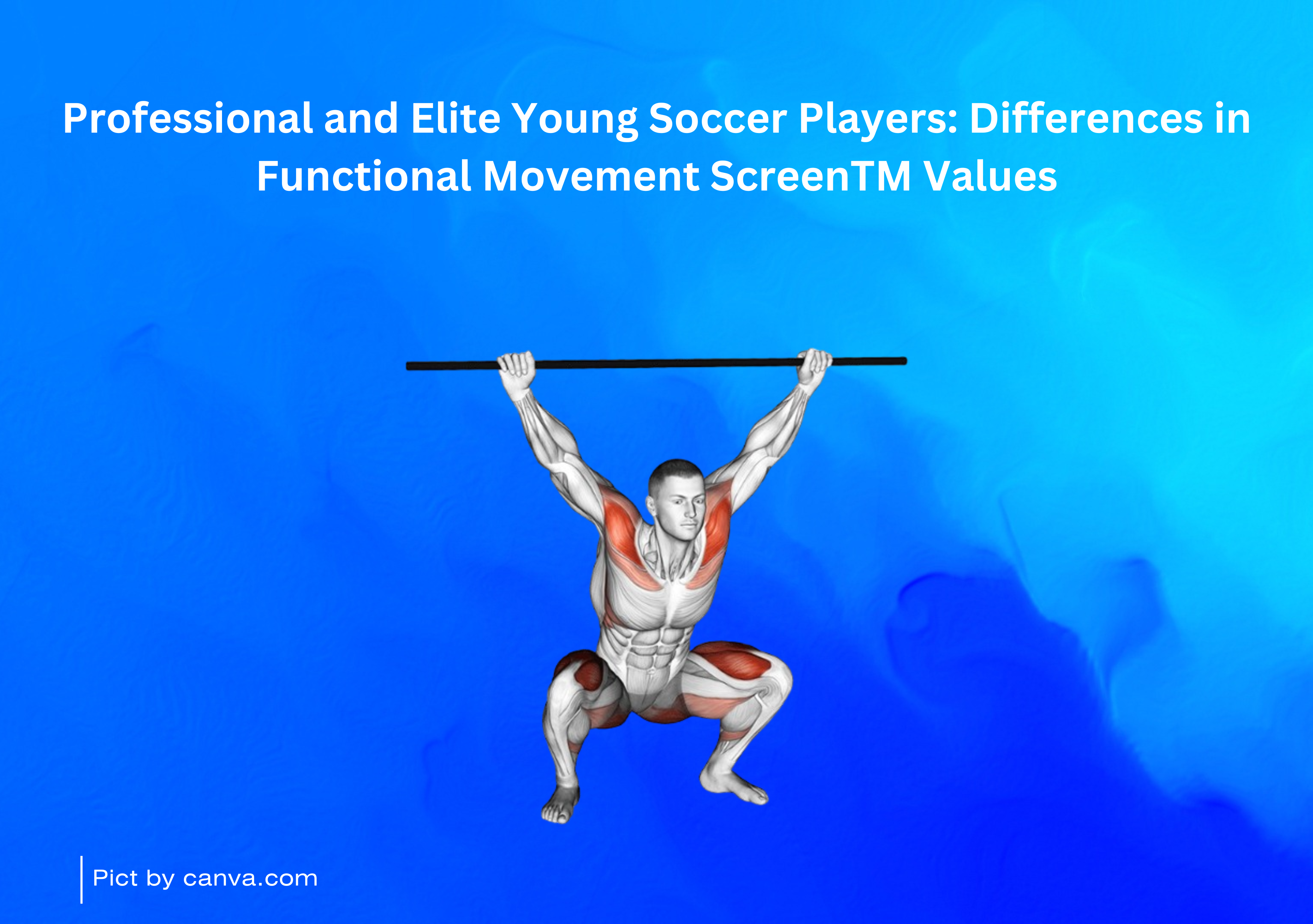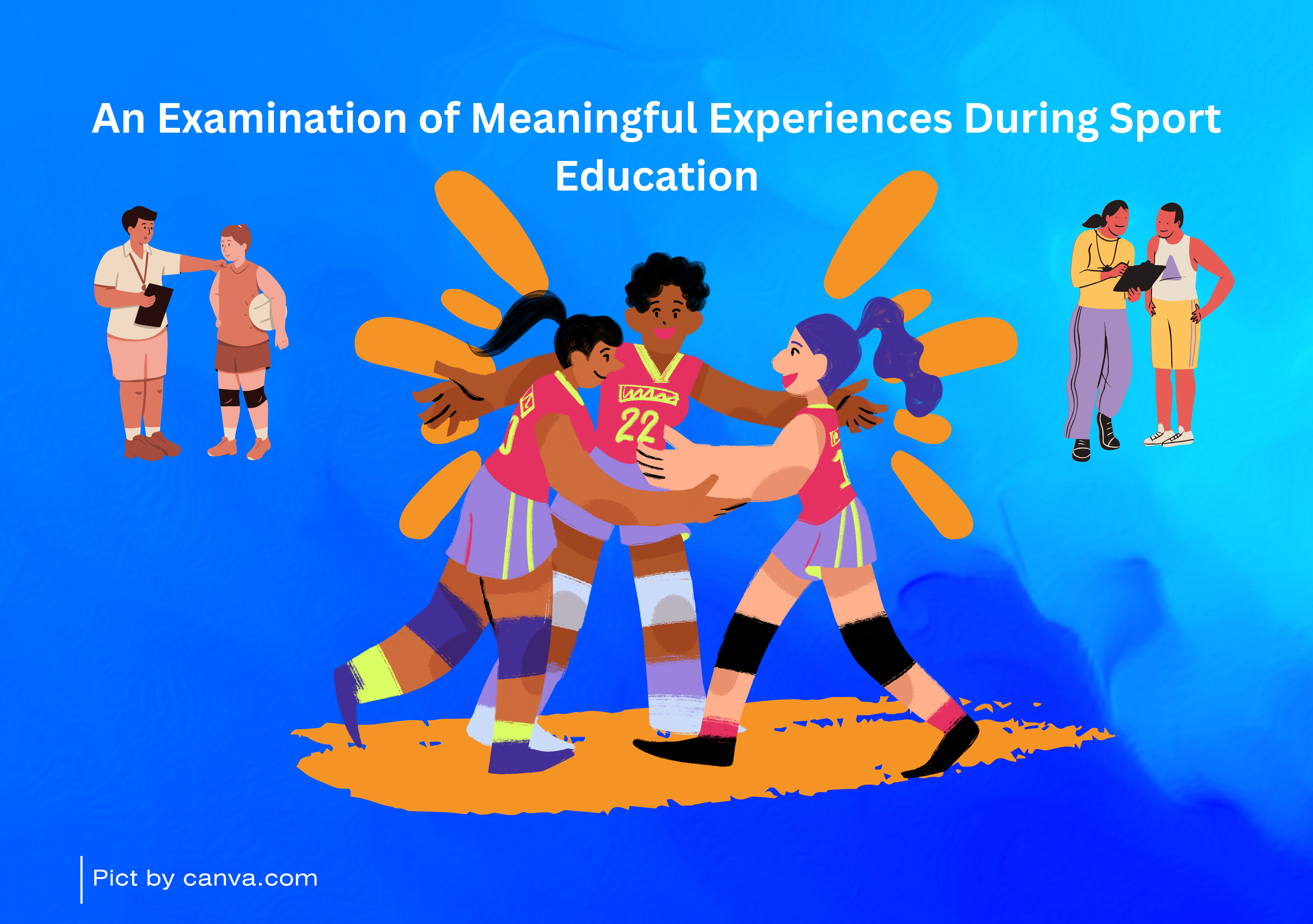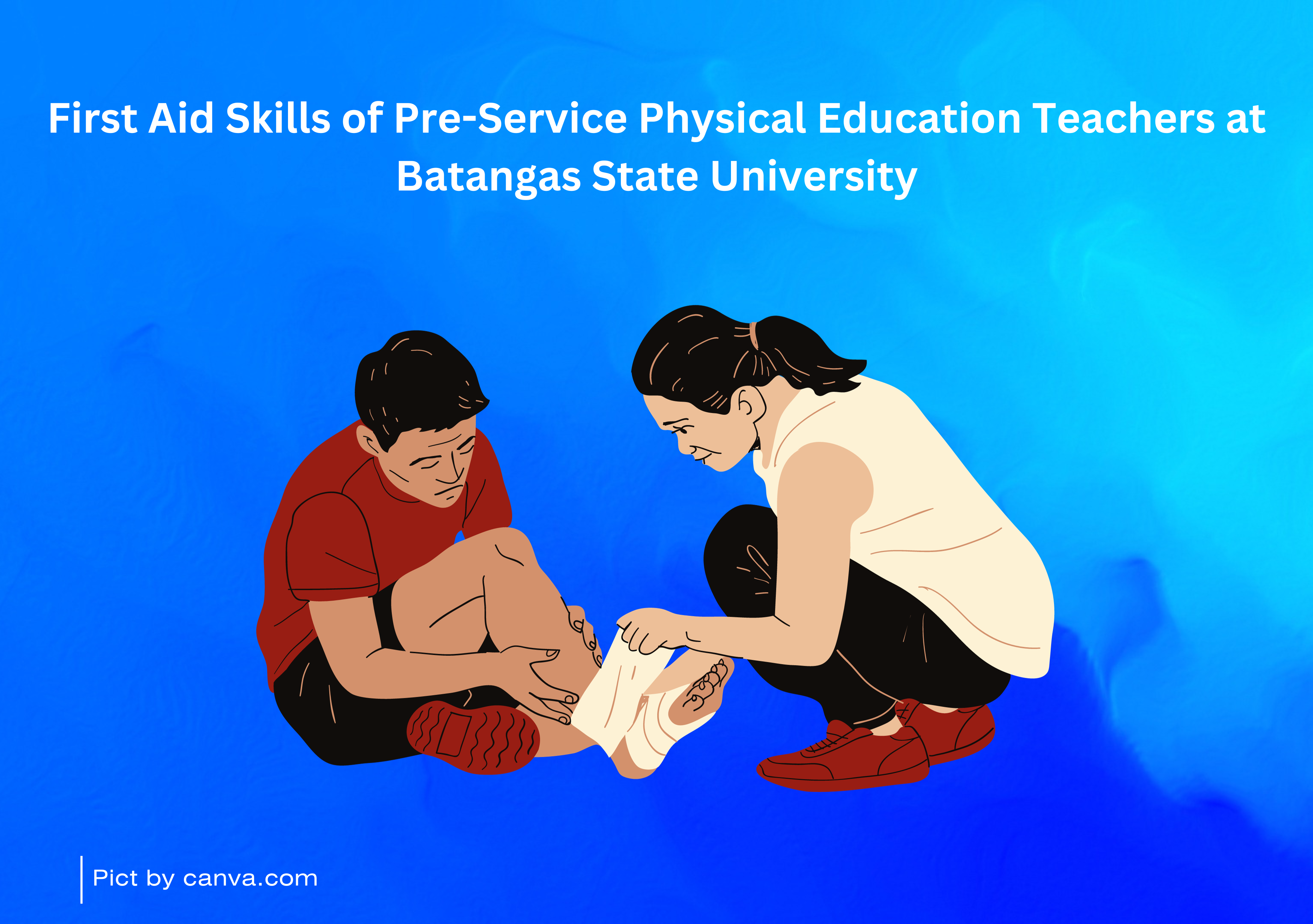Global trends of gamification in enhancing students’ social skills in physical education (2015–2025)
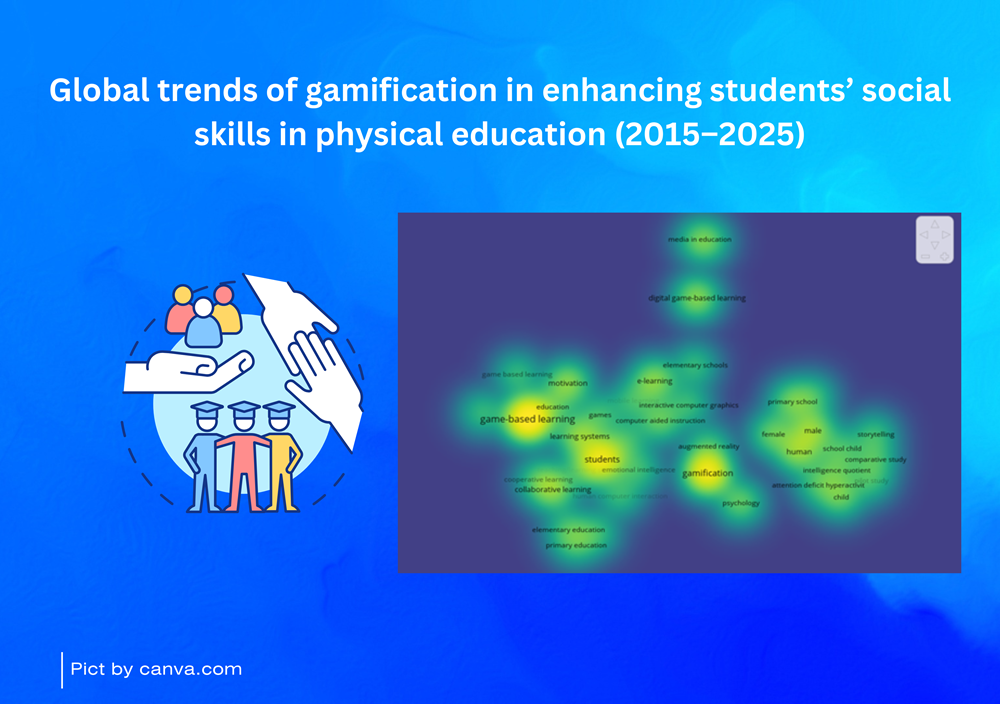
Downloads
Background: The development of digital technology has triggered a more interactive learning transformation through gamification, namely using game elements to increase students' motivation, engagement, and social skills, such as cooperation, communication, empathy, and problem solving.
Objectives: This study aims to analyze global research trends on gamification in enhancing students' social skills, particularly in physical education, through a bibliometric analysis from 2015 to 2025.
Methods: This study employed a bibliometric design. Data were retrived from the Scopus database on April 22, 2025, using specific keywords: (gamification OR gamified learning OR game-base-based learning) AND ("physical education" OR "PE class" OR "sport education") AND (social skills" OR "social competence" OR "social interaction") AND (elementary school" OR "primary school" OR "midle school" OR "junior high school" OR "high school" OR "secondary school" From an initial 120 documents, 47 met the inclusion criteria. VOSViewer was used to analyze keyword co-occurrence, visualize trends, and identify thematic clusters by completely counting on all keywords with at least two documents per author.
Results: 47 relevant articles were identified, with publication peaking in 2020. Keyword analysis revealed five main thematic clusters: gamification in education, digital game-based learning, collaborative learning, emerging technologies, and motivation. The most frequent keywords were game-based learning (n=12), gamification (n=9), and students (n=8). The University of Patras emerged as the most productive institution, while the leading journal was the International Journal of Learning, Teaching and Educational Research.
Conclusions: Although research on gamification has grown significantly, its application in physical education remains underexplored. This study reveals a gap in leveraging gamification to develop students' social skills in physical education. Future research should focus on integrating gamification in this context while considering sociocultural and technological factors to ensure inclusive and effective implementation.
Bracho Mosquera, A. S., Román-Mireles, A., Rodríguez-Álvarez, A. M., Ormaza Esmeraldas, E. del C., Nieves-Lizárraga, D. O., Viridiana Velarde-Osuna, D., Olguín-Martínez, C. M., Bracho Rivera, M. A., Bracho Rivera, R. I., Ramos Perez, R. L., Villacorta Guzmán, J. R., Romero-Carazas, R., Vera Barrios, B. S., Rodríguez Vásquez, M. P., Buelna-Sánchez, R., De Jesús De La Paz Rosales, M. T., Rosillo Suárez, N., & Mora-Barajas, J. G. (2024). Gamification and development of social skills in education. AG Salud, 2, 58. https://doi.org/10.62486/agsalud202458
Bulic, M., & Blazevic, I. (2020). The impact of online learning on student motivation in science and biology classes. Journal of Elementary Education, 13(1), 73–87. https://doi.org/10.18690/rei.13.1.73-87.2020
Chan, E., Nah, F. F. H., Liu, Q., & Lu, Z. (2018). Effect of gamification on intrinsic motivation. In HCI in Business, Government, and Organizations: 5th International Conference, HCIBGO 2018, Held as Part of HCI International 2018, Las Vegas, NV, USA, July 15-20, 2018, Proceedings 5 (pp. 445-454). Springer International Publishing. https://doi.org/10.1007/978-3-319-91716-0_35
Damasceno, M. das G. de A., Santos, A. de O. F., Silva, E. M. da, Corrêa, J. A., Andrade Filho, M. A. S. de, & Silva, R. F. da. (2024). Colaboração Digital: Construindo Comunidades De Aprendizado Com As Tics: Potencializando a Educação Colaborativa Através Das Tecnologias Digitais. Revista Ibero-Americana de Humanidades, Ciências e Educação, 10(5), 3857–3866. https://doi.org/10.51891/rease.v10i5.14203
Ebina Justin, M. A., & Joy, M. M. (2023). Exploring Intrinsic Motivating Factors in Gamified Context: A Mixed-Method Study. International Journal of Human-Computer Interaction, 39(19), 3728–3744. https://doi.org/10.1080/10447318.2022.2104018
Figueiredo, J., & Garcia-Penalvo, F. J. (2020). Increasing student motivation in computer programming with gamification. 2020 IEEE Global Engineering Education Conference (EDUCON), April, 997–1000. https://doi.org/10.1109/EDUCON45650.2020.9125283
Fonseca, I., Caviedes, M., Chantré, J., & Bernate, J. (2023). Gamification and Game-based Learning as Cooperative Learning tools: A systematic review. International Journal of Emerging Technologies in Learning (iJET), 18(21), 4-23. http://dx.doi.org/10.3991/ijet.v18i21.40035
García-Peña, V. R., & Rodriguez-Ayala, A. E. (2023). La importancia de la gamificación en la motivación estudiantil. Multidisciplinary Collaborative Journal, 1(4), 27–39. https://doi.org/10.70881/mcj/v1/n4/24
Glazunova, I. N. (2024). The use of gamification in the organization of the educational process in elementary school. Education Management Review, 14(1-2), 185–192. https://doi.org/10.25726/z7861-9445-7214-k
Gomes, T., & Tedesco, P. (2017, October). Gamificando a sala de aula: desafios e possibilidades em uma disciplina experimental de Pensamento Computacional no ensino fundamental. In Workshop de Informática na Escola (WIE) (pp. 1-10). SBC. https://doi.org/10.5753/cbie.wie.2017.1
Hashim, N. H., Harun, N. O., Ariffin, N. A., & Abdullah, N. A. C. (2024). Gamification using Board Game Approach in Science Education - A Systematic Review. Journal of Advanced Research in Applied Sciences and Engineering Technology, 33(3), 73–85. https://doi.org/10.37934/araset.33.3.7385
Liu, Z.-Y., Shaikh, Z. A., & Gazizova, F. (2020). Retracted Article: Using the Concept of Game-Based Learning in Education. International Journal of Emerging Technologies in Learning (iJET), 15(14), pp. 53–64. https://doi.org/10.3991/ijet.v15i14.14675
McAllister, J. T., Lennertz, L., & Atencio Mojica, Z. (2022). Mapping A Discipline: A Guide to Using VOSviewer for Bibliometric and Visual Analysis. Science and Technology Libraries, 41(3), 319–348. https://doi.org/10.1080/0194262X.2021.1991547
Oluwagbohunmi, M. F., & Alonge, R. A. (2023). 21st Century Skills and Its Applicability to Social Studies. Asian Journal of Education and Social Studies, 41(3), 37–43. https://doi.org/10.9734/ajess/2023/v41i3896
Othman, M. I., Husin, N. I., Abdullah, A. R., Bakhari, N. A., Mohd Zin, A., & Mokhtar, M. (2024). a Journey Into the Thrilling Depths of Chemistry Through Gamification. Quantum Journal of Social Sciences and Humanities, 5(2), 104–110. https://doi.org/10.55197/qjssh.v5i2.349
Pysmennyi, V. (2024). The Influence of Economic Board Games on the Development of Cognitive and Social Skills in Pupils and Student Youth. Problems of Education, 1(1(100)), 238–250. https://doi.org/10.52256/2710-3986.1-100.2024.16
Ramamonjisoa, D. (2024). Equipping Students For A Dynamic Future. PUPIL: International Journal of Teaching, Education and Learning, 08(02), 32–48. https://doi.org/10.20319/pijtel.2024.82.3248
Ramos, D. P., Araújo, F. R. de S., Rancan, G., Júnior, H. G. M., & De Bona, M. (2024). Gamificação E Motivação No Aprendizado. RCMOS - Revista Científica Multidisciplinar O Saber, 1(1), 1-9. https://doi.org/10.51473/rcmos.v1i1.2024.486
Riquelme Benítez, C. R. (2023). Gamificación empresarial como herramienta dinámica de motivación y logro de objetivos. Revista Científica En Ciencias Sociales, 5(2), 87–91. https://doi.org/10.53732/rccsociales/05.02.2023.87
Ruiz, J. J. R., Sanchez, A. D. V., & Figueredo, O. R. B. (2024). Impact of gamification on school engagement: a systematic review. Frontiers in Education, 9(December). https://doi.org/10.3389/feduc.2024.1466926
Sigala, M. (2015). Applying Gamification and Assessing its Effectiveness in a Tourism Context : Behavioural and Psychological Outcomes of the TripAdvisor’s Gamification Users. Asia Pacific Journal of Information Systems, 25(1), 179–210. https://doi.org/10.14329/apjis.2015.25.1.179
Smirani, L., & Yamani, H. (2024). Analysing the Impact of Gamification Techniques on Enhancing Learner Engagement, Motivation, and Knowledge Retention: A Structural Equation Modelling Approach. Electronic Journal of E-Learning, 22(9), 111–124. https://doi.org/10.34190/ejel.22.9.3563
Souza, V. C. ., Júnior, H. G. M., da Rocha, E. P. ., Costa, V. R. F. G., & Narciso, R. . (2024). Integration of technology in collaborative learning: Strategies and impacts on modern education. Multidisciplinary Scientific Journal The Knowledge, 1(1). https://doi.org/10.51473/rcmos.v1i1.2024.471
Tenor, A. C. (2021). a Utilização Da Literatura Infantil Para O Processo De Ensino E Aprendizagem. Educação Infantil: Políticas, Práticas e Formação de Professoras(Es), 81–89. https://doi.org/10.22533/at.ed.7242110037
Zheng, L. R., Oberle, C. M., Hawkes-Robinson, W. A., & Daniau, S. (2021). Serious Games as a Complementary Tool for Social Skill Development in Young People: A Systematic Review of the Literature. Simulation and Gaming, 52(6), 686–714. https://doi.org/10.1177/10468781211031283
Copyright (c) 2025 Rajip Mustafillah Rusdiyanto, Ari Wibowo Kurniawan

This work is licensed under a Creative Commons Attribution-ShareAlike 4.0 International License.
